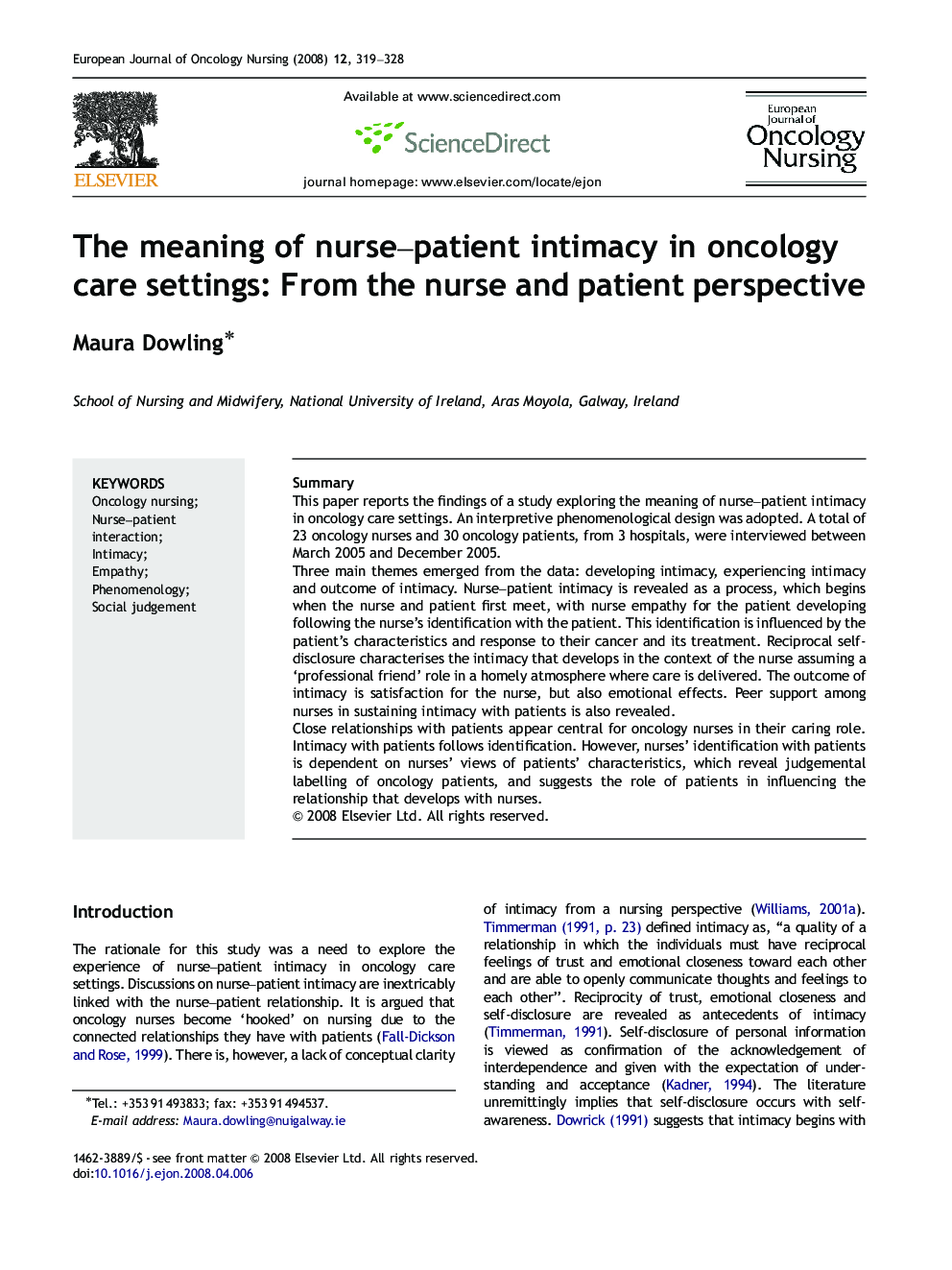| Article ID | Journal | Published Year | Pages | File Type |
|---|---|---|---|---|
| 2649100 | European Journal of Oncology Nursing | 2008 | 10 Pages |
SummaryThis paper reports the findings of a study exploring the meaning of nurse–patient intimacy in oncology care settings. An interpretive phenomenological design was adopted. A total of 23 oncology nurses and 30 oncology patients, from 3 hospitals, were interviewed between March 2005 and December 2005.Three main themes emerged from the data: developing intimacy, experiencing intimacy and outcome of intimacy. Nurse–patient intimacy is revealed as a process, which begins when the nurse and patient first meet, with nurse empathy for the patient developing following the nurse's identification with the patient. This identification is influenced by the patient's characteristics and response to their cancer and its treatment. Reciprocal self-disclosure characterises the intimacy that develops in the context of the nurse assuming a ‘professional friend’ role in a homely atmosphere where care is delivered. The outcome of intimacy is satisfaction for the nurse, but also emotional effects. Peer support among nurses in sustaining intimacy with patients is also revealed.Close relationships with patients appear central for oncology nurses in their caring role. Intimacy with patients follows identification. However, nurses’ identification with patients is dependent on nurses’ views of patients’ characteristics, which reveal judgemental labelling of oncology patients, and suggests the role of patients in influencing the relationship that develops with nurses.
